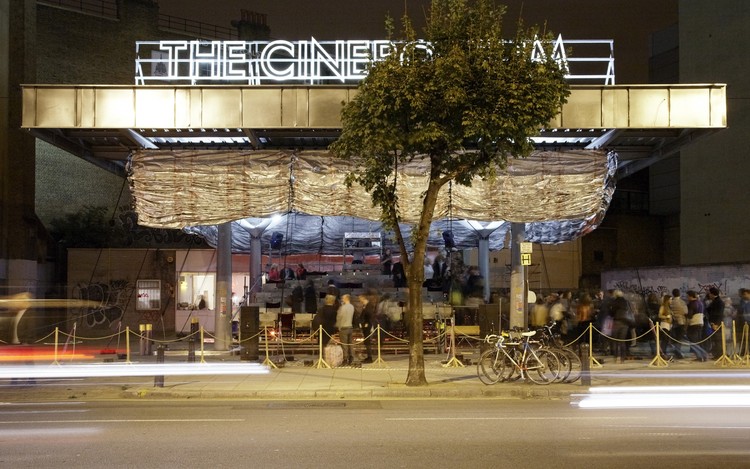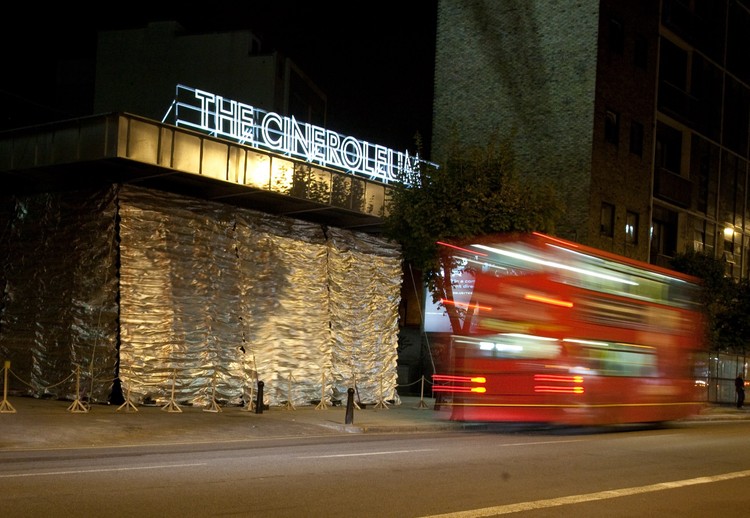

Text description provided by the architects. The Cineroleum was a self-initiated project that transformed a petrol station on Clerkenwell Road into a cinema. The project was an experiment in the the potential for the wider re-use of the UK’s 4,000 empty petrol stations.



The Cineroleum was an improvisation on the rich iconography and decadent interiors of the golden age picture palace. Classic elements were re-created for the roadside setting using cheap industrial, reclaimed or donated materials. Flip-up seats were made from scaffolding boards, the foyer was furnished with formica-clad school chairs and tables , and the auditorium was enclosed by a curtain, created by hand-sewing about three kilometres of seam in roofing membrane.

The Cineroleum was visibly handmade, built on site by a team of over a hundred volunteers, learning and experimenting together, aided by instruction manuals written during the prototyping process.

Unlike the out-of-town multiplex, The Cineroleum celebrated the social experience of filmgoing, from the popcorn machine and bar in the old station shop through to the programme of approachable classics.

Separated from the busiest single-lane road in Europe by a curtain, it allowed for both collective escapism and created a public spectacle on the street for passers-by. At the end of the film the curtain rose, pushing the audience from the imaginative world of the film to the everyday theatre of the street.



















